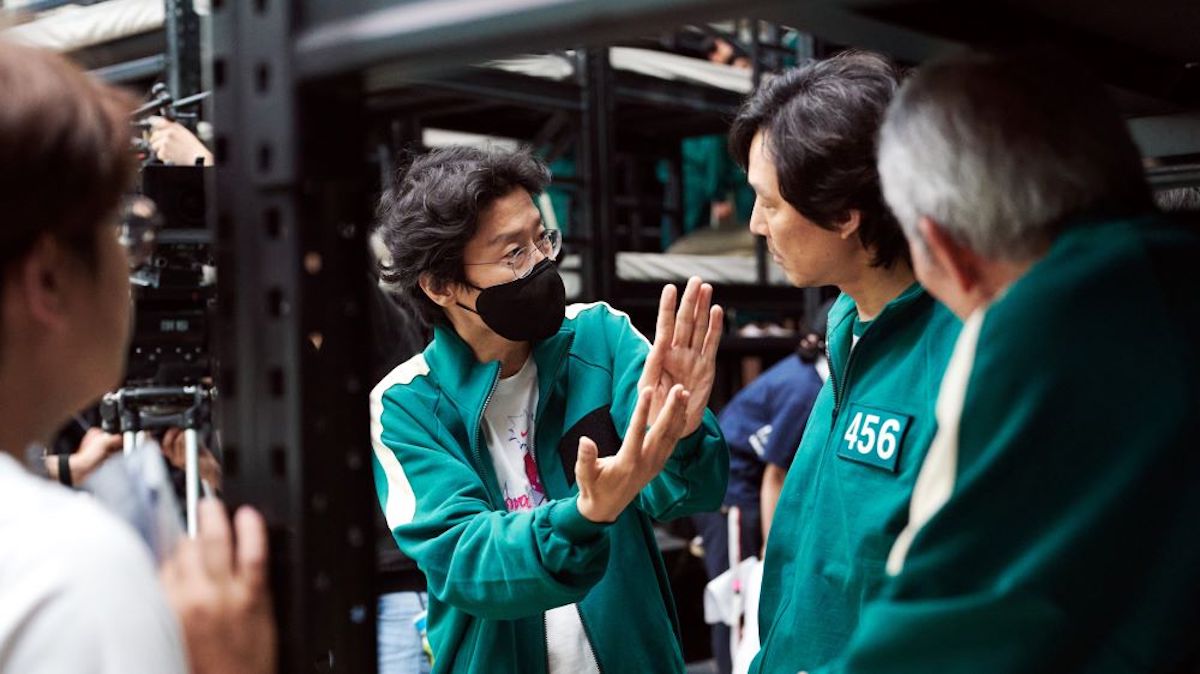
Does the ‘Squid Games’ reality show cause real-life trauma?
When Netflix announced “Squid Game: The Challenge,” a reality show inspired by the Korean thriller series “Squid Game,” many were quick to point out the irony. The original series, hailed for its anti-capitalist themes, seemed at odds with a competitive reality show format. But is there more to this adaptation than meets the eye?
Tim Harcourt, an executive producer of “Squid Game: The Challenge,” spoke to TV Guide, emphasizing the diverse themes of the original series. “It’s about more than just anti-capitalism. Think of Star Wars: it’s not just about rebels and empires. ‘Squid Game’ similarly has layers – it’s about childhood competitiveness and how we band together under pressure,” Harcourt explains.

Peeling Back the Layers
This perspective sheds new light on the reality show. By focusing on the human element – how individuals react in high-pressure situations – “Squid Game: The Challenge” aims to explore deeper societal issues beyond just the critique of capitalism.
John Hay, another executive producer, echoes this sentiment, highlighting the originality of the “Squid Game” concept. “It’s an ingenious way to examine character under pressure, something that resonates in both scripted and unscripted shows,” Hay remarks.
This approach sets “Squid Game: The Challenge” apart from its dramatic counterpart. While the original series dwelled on desperation, the reality show pivots to opportunity. Contestants join not out of need but for the chance to seize an extraordinary opportunity.

The Reality Show Experience
Despite its thematic divergence, the reality show hasn’t been without controversy. Early reports from Variety and others highlighted concerns over contestants’ welfare during filming. Harcourt addressed these worries, assuring that all necessary precautions and checks were in place, particularly during intense games like “Red Light, Green Light.”
The show’s structure also provides insight into contestants’ motivations, adding a humanizing layer to the competition. As viewers, we see not just the struggle for victory but the personal stories driving each participant.
“Squid Game,” the original series, became a worldwide sensation soon after its release on Netflix. It wasn’t just its thrilling plot but the simple, relatable characters and the raw depiction of human desperation that captivated audiences globally. Its creator, Hwang Dong-hyuk, admitted to drawing inspiration from various sources, including Japanese comics, but emphasized his unique take on the survival genre.

Cultural Reflection
Hwang’s work is a mirror to South Korea’s intensely competitive society, but its themes are universally relatable. “Squid Game” is more than just entertainment; it’s a reflection on the human condition under extreme circumstances. This universality is what made the show resonate with audiences worldwide, transcending cultural barriers.
As for Hwang Dong-hyuk, the creator of “Squid Game,” he’s taking a breather from the high-stress world of series production. His focus is now on a new film project, tentatively titled “KO Club.” But fans shouldn’t lose hope – a “Squid Game” sequel isn’t off the table, though Hwang insists it would be a collaborative effort, a departure from his usual solitary creative process.
As “Squid Game: The Challenge” continues to unfold on Netflix, it invites us to look beyond the obvious. It’s not just a reality show; it’s a deeper exploration of human nature, competition, and society. As viewers, we’re left to ponder: Are we watching just for entertainment, or are we also part of this intricate societal reflection?







